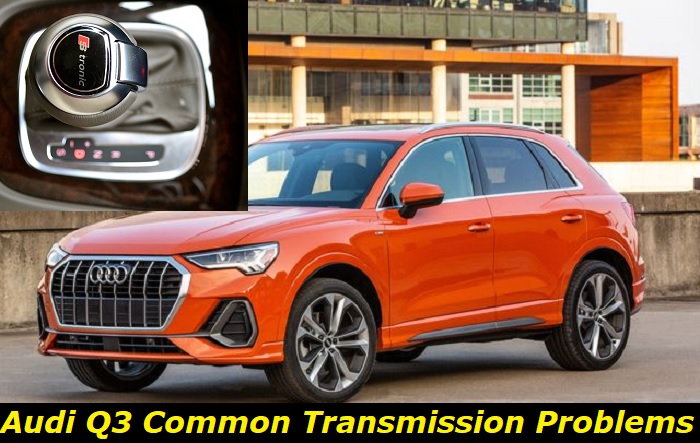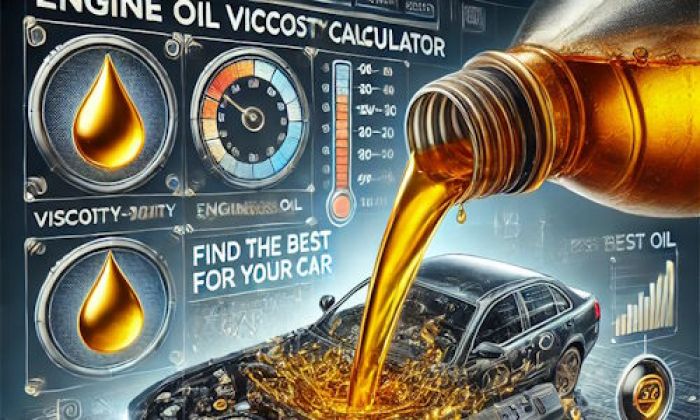Audi is a well-known German vehicle manufacturer, and the Audi Q3 is part of its SUV family. For many years, the vehicles produced by Audi have had a reputation for being high-quality and reliable with excellent performance, beautifully designed, comfortable and convenient.
Automatic transmission malfunction highlights
- Level of importance:Medium
- Reasons:Electronic control problems, shifter issues, sensor-related issues
- Needed expertise:High
- Needed tools:Professional tools set
- Time taken:1-8 hours
- Can you drive? Not recommended
- Possible issues: Fatal damage, overheating, torque converter damage, TCU damage.

Types of transmissions
Depending on the year of production, model, type of fuel, power, and transmission, the gearboxes in the Audi Q3 also differ. Two types of gearboxes appear in Audi vehicles, including the Audi Q3, the common automatic transmission, and the S-Tronic dual clutch.
Automatic gearbox
In most Audi Q3s, the automatic transmission prevails. The Audi Q3 has several types of automatic transmissions depending on the Q3 model, and most problems occur when the transmission hits about 80,000 miles. The most common issues with this gearbox are next:
- Audi Q3's automatic transmission fluid is leaking
A worn spy seal is the most likely cause of an Audi Q3 automatic transmission leak. The symptom of this problem is red fluid under your car. This problem must be taken seriously, because if you neglect it and if too much transmission fluid leak it can quickly cause bigger damage.
Transmission fluid is flammable and for that reason, it is important to fix it immediately. The transmission pan, the transmission gasket, and the bolts that connect the pan to Q3 transmission are the most common places where transmission fluid could leak from.
Transmission fluid leaking is a serious problem. If you notice a few drops on your garage floor it is not dangerous to drive, but repair it immediately with a smaller cost to drive a safe car.
- Torque Converter Clutch Circuit Malfunction
The torque converter clutch enables the automatic transmission to operate the manual transmission at certain speeds, thus preventing the transmission from slipping. The symptoms of this problem may vary depending on whether the inverter is unlocked or locked, but the most common ones are poor fuel consumption, stalling of the gearbox, and higher engine revs on the highway.
The causes of this problem are different. The torque converter or torque converter clutch can get bad, or the transmission case itself if the filter is clogged or there is an issue with a valve body. The most likely cause is that the torque converter clutch solenoid has gone bad.
To diagnose either of these causes you need to go to mechanics to read the code from your car computer and detect the cause.
- Linkage problem
A linkage problem with your automatic transmission is one of the possible problems. If your Audi Q3 jumps in gear and does not start, it means that there is a problem in the communication between the computer and the gearbox.
If there is a disturbance in changing speeds, then the cause is either wrong signals that the computer receives from a faulty sensor, faulty connections between the electromagnetic valves and the computer due to corrosion or mechanical damage, or the entire electronic hydraulic unit malfunction.
Such defects can be eliminated without removing the transmission and at relatively low costs in comparison with the complete repair of the automatic transmission.
- Cracking and squeaking gearbox
A problem that Audi Q3 owners often complain about is when the gearbox is making a cracking and squeaking noise when changing gear. This problem occurs when transmission oil loses fluidity.
When we become aware of this, we need to change the fluid in the gearbox, the question is when to do it. When we notice the first signs of worn oil, it is usually too late, and it will be difficult to avoid expensive repairs.
For this reason, it is better to change the fluid on time, which will help us avoid future costs. In most cases, about every 50,000 miles would be the optimal time for a change, although a lot also depends on usage patterns and the age of the car.
After a while, even the most effective oil will lose its quality. The oil deteriorates quite slowly, but gradually and systematically. If you are using an automatic gearbox, every gear change with worn oil involves jerks and resistance.
Dual-clutch gearbox
A dual-clutch transmission consists of two clutches to control the gears, clutch A and clutch B. Clutch A is used on odd numbers and clutch B is used on even numbers. These two clutches are designed to work together to allow smoother and faster gear changes. With a dual-clutch gearbox, changing gears is smoother than in common automatics, and acceleration is improved. The most common problems that these transmissions are the following:
- Failed mechatronic unit
The mechatronic unit is the control part of the dual-clutch system. This electronic control unit evaluates whether the transmission should shift gears. The most common malfunctions are the improper operation of the solenoid in the computer, defective sensors, and the electronic components on the motherboard can be damaged.
The malfunction may start with a malfunction of the temperature sensor. The data that the sensor receives are incorrect, and the computer does the wrong thing based on it, leading to a failure. The result is that some or all gears stop working, which you will notice by screeching and poor fuel consumption.
Another common problem is the gap that forms between the valve seat and the valve under normal wear. Problems with mechatronics must be fixed as soon as you notice them. Failing mechatronic unit is one of the most expensive issues.
- Clutch slippage
If you noticed that your Audi Q3 engine runs in a vacuum after putting it geared, you want to check whether the clutch is slipping. The clutch serves to attach the engine and gearbox, and if one in all its components is dysfunctional, there will be an issue with the gearbox.
Clutch slippage occurs when there is an eruption within the number of revolutions of the engine, after switching from one gear to a different one, as if the engine goes idle. It should even be noted here that the failure of the vacuum system is always a result of a malfunctioning engine that doesn't create enough vacuum, or due to poor adjustment or a vacuum leak.
- Clutch paks
A Clutch can last the entire life of the vehicle, but only if the car is used according to recommendations. Any performance adjustment affects clutch durability, as does over-aggressive driving.
The quantity and quality of oil in the gearbox also affect the durability of the clutch in some transmissions. If your driving style is a little more aggressive and you have changed the performance, be sure to take care of the clutches and check their condition regularly.
Dual-clutch transmission may have some problems, but if you are aware of them and you maintained them regularly and on time, Dual-clutch transmission could serve you for about ten years without any problems.
Maintenance of Audi Q3 gearboxes
So, when we discuss the gearboxes on the Audi Q3, we are talking about a very complex mechanism. Any intervention during this complex system requires expertise and excellent knowledge of the complete gear. As soon as you notice an issue with your gearbox, it's recommended that you simply contact an expert for Audi Q3 gearboxes to avoid further breakdowns and produce your car to optimal condition.
Because of the complexity of the transmission itself, it's by no means recommended that you just do the repairs yourself, so in the case of incorrect operation, they would not create a bigger problem, and consequently even higher repair costs.
Even if the repair does not seem complicated and you believe you could do it yourself, you better not get involved in this work. When buying an Audi Q3, ask about the authorized repairers in your area so that you know who to contact at any time in the event of an issue. Also be sure to do regular and timely maintenance of all components of your vehicle, including the gearbox, which is usually neglected.
Conclusion
Audi has a good reputation as a manufacturer of one of the very best quality vehicles and its SUV proudly belongs to the top-notch category. To enjoy your Audi Q3 for as long as possible, we recommend that you simply listen to its gearbox, irrespective of whether it's a manual or automatic gearbox.
Most of the issues that occur with the gearbox within the Audi Q3 are caused by worn parts of the gearbox system. During regular service, ask a mechanic to test the operation of the gearbox. If you notice the matter yourself, take the vehicle to be repaired on time.
About the authors
The CarAraC research team is composed of seasoned auto mechanics and automotive industry professionals, including individuals with advanced degrees and certifications in their field. Our team members boast prestigious credentials, reflecting their extensive knowledge and skills. These qualifications include: IMI: Institute of the Motor Industry, ASE-Certified Master Automobile Technicians; Coventry University, Graduate of MA in Automotive Journalism; Politecnico di Torino, Italy, MS Automotive Engineering; Ss. Cyril and Methodius University in Skopje, Mechanical University in Skopje; TOC Automotive College; DHA Suffa University, Department of Mechanical Engineering






Add comment